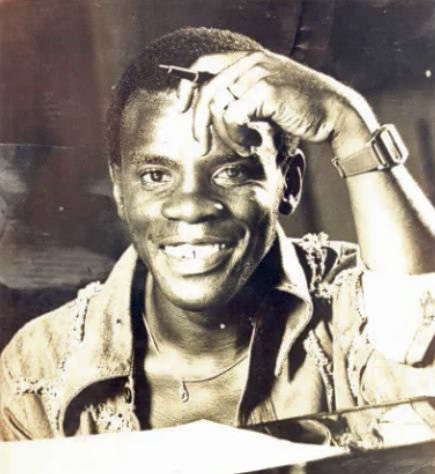
“Maestro”
Brooklyn, New York - Calypso will be the focus of the next Trinidad & Tobago Folk Arts Institute forum at Medgar Evers College, when a panel discussion explores the phenomenal work and legacy of the late Maestro, 35 years after his death. The event, another in the series of collaborations between the Folk Arts Institute and the College’s School of Professional and Community Development, will be held Thursday evening, February 28 in the Mary Pinkett Lecture Hall, 1637 Bedford Avenue, Brooklyn on the Medgar Evers campus.
Scheduled as panelists are individuals known to be conversant with the calypso culture generally and familiar with Maestro’s life and work. They include: Rawlston Charles, veteran producer of calypso-soca recordings, who produced and distributed Maestro’s music; Frankie McIntosh, well-known arranger of calypso-soca music; and Kenrick Mead, former music producer.
Les Slater, chair of the Folk Arts Institute, said: “Although it was a relatively short span of years that he was in the arena, Maestro’s contribution was so extraordinarily impressive, it left connoisseurs of the art form awe-struck. Because so much exceptional material emanated from him before what was a most untimely exit, the need for serious examination of his work is even more compelling.”
It was in August 1977 that Maestro, born Cecil Hume, came to his demise in an auto accident in Trinidad. His death came on the eve of a scheduled trip to perform in New York and it was in the latter stages of a standout year in which he had scored with a number of memorable compositions including “Rampage,” ”Melee,” “Bionic Man” and “Gold,” his tribute to Trinidadian Hasely Crawford’s 100 meters victory in the 1976 Montreal Olympics. The eeriness of his “Bionic Man” composition, in which he related having died in an auto crash and being scientifically given a rebirth, has not ceased to bedevil calypso fans over the years since his passing.
Maestro’s 1976 album, laden with gems, is considered by the cognoscenti one of the greatest calypso albums ever. The hits included “Fiery,” “Boom Bam,” “Mountain Dew Gang,” “Champion of the Road” and “Some Came Running.” Among signature selections he unleashed earlier were “Black Identity,” “Mr. Trinidad” and ”Tempo.”
Two of Maestro’s hits have been recycled and performed by modern-day soca artists. A version of “Fiery” was released by Bunji Garlin in 2008. For the 2013 Trinidad Carnival “Gold” made a reappearance, performed by an eclectic group including Machel Montano, Rikki Jai, Karene Asche and Dwayne O’Connor, and with lyrics modified to sing the praises of Trinidadian javelin gold medalist at the 2012 London Olympics, Keshorn Walcott and other past Trinidad and Tobago winners and champions of international renown. Exodus, Buccooneers, Supernovas, Tamana Pioneers, Tokyo and West Stars steel orchestras all chose the revamped “Gold” as their tune of choice in the Trinidad & Tobago Panorama 2013.
The Feb. 28 panel discussion commences at 7:00 PM. It is open to the public and admission is free. For further information the contact numbers are: 718-252-6161 (Folk Arts Institute) and 718-804-8815 (School of Professional & Community Development).
From the News
Desk of the Folk Arts Institute
Leave a comment in the WST forum





